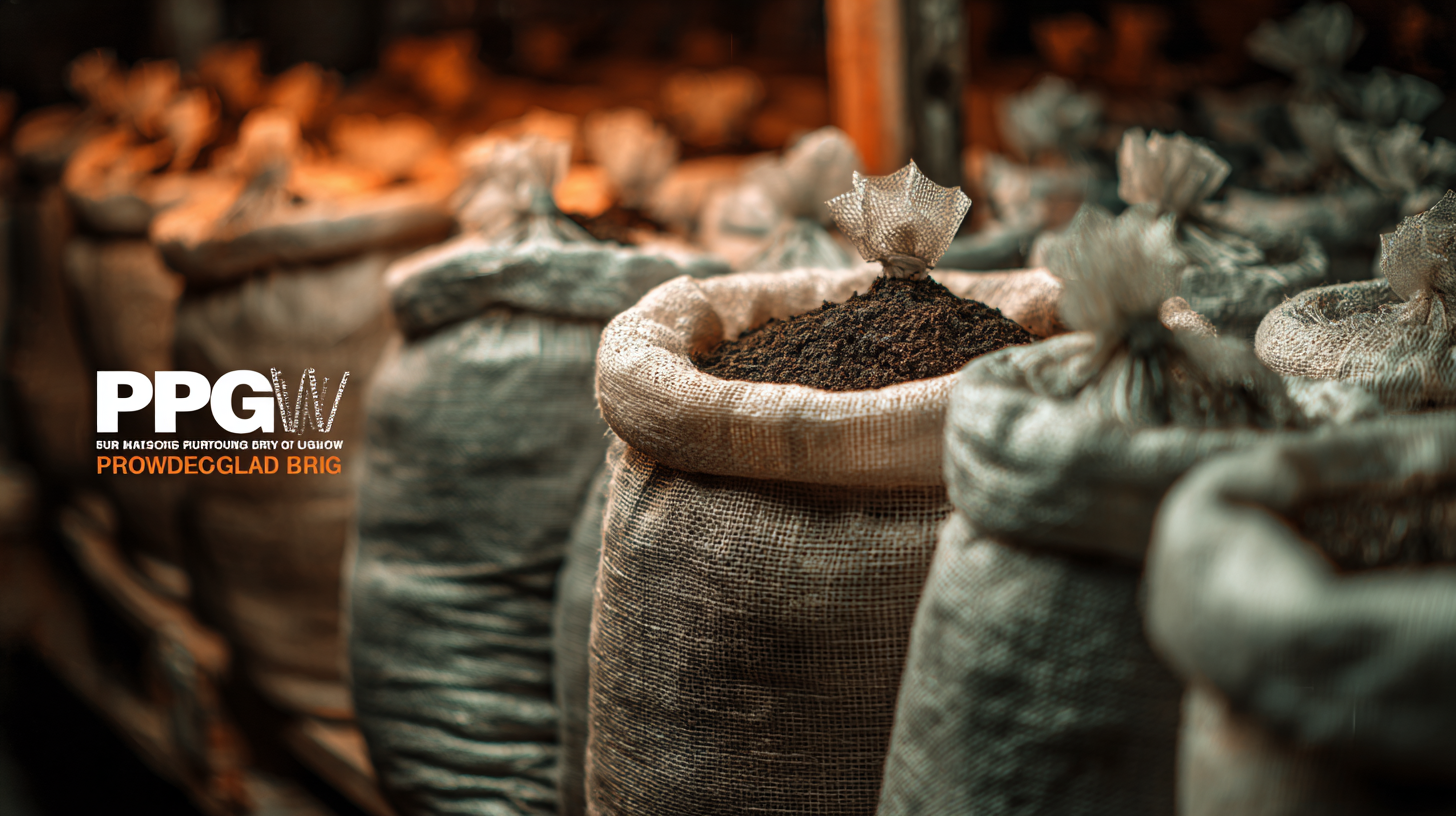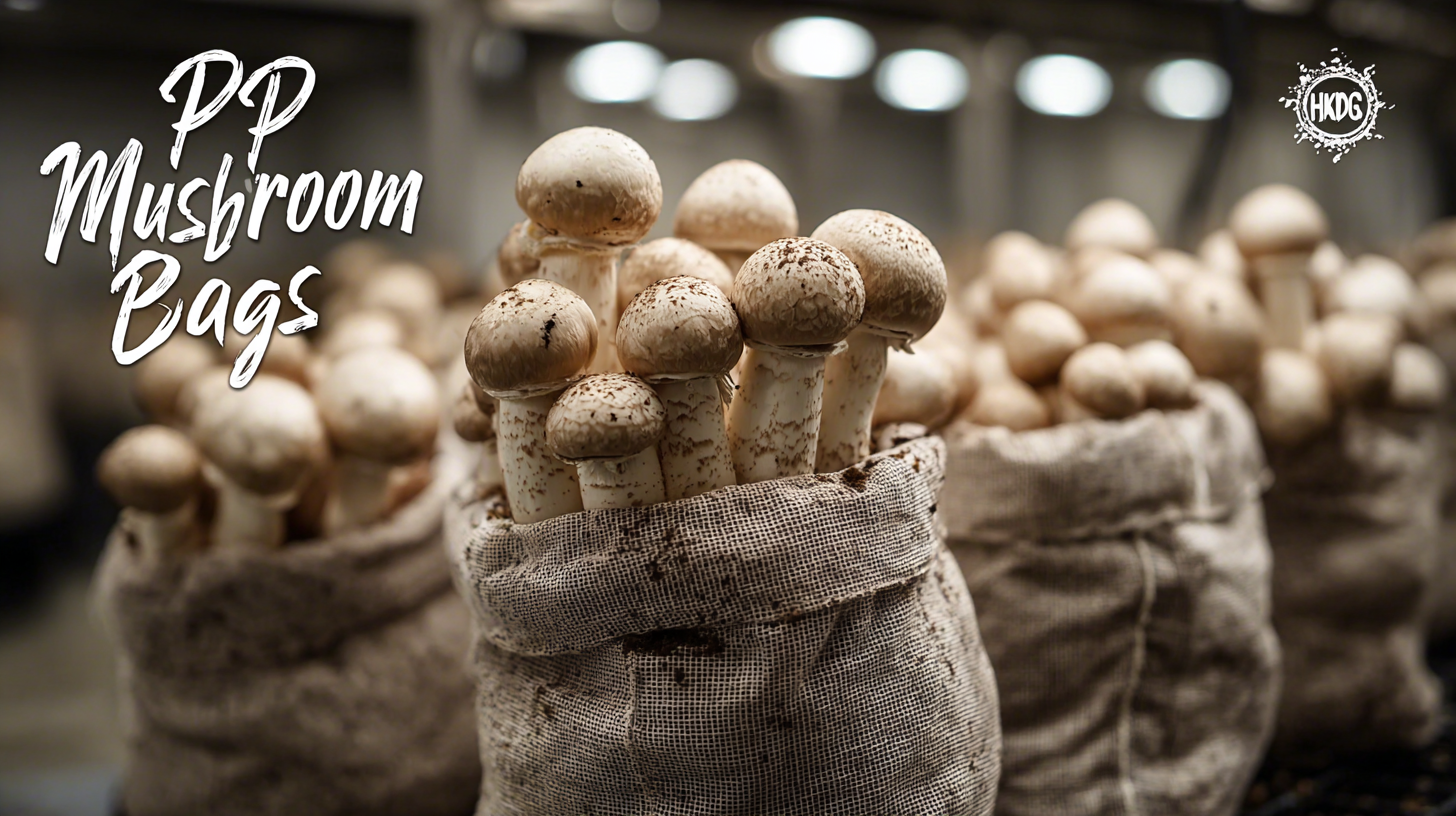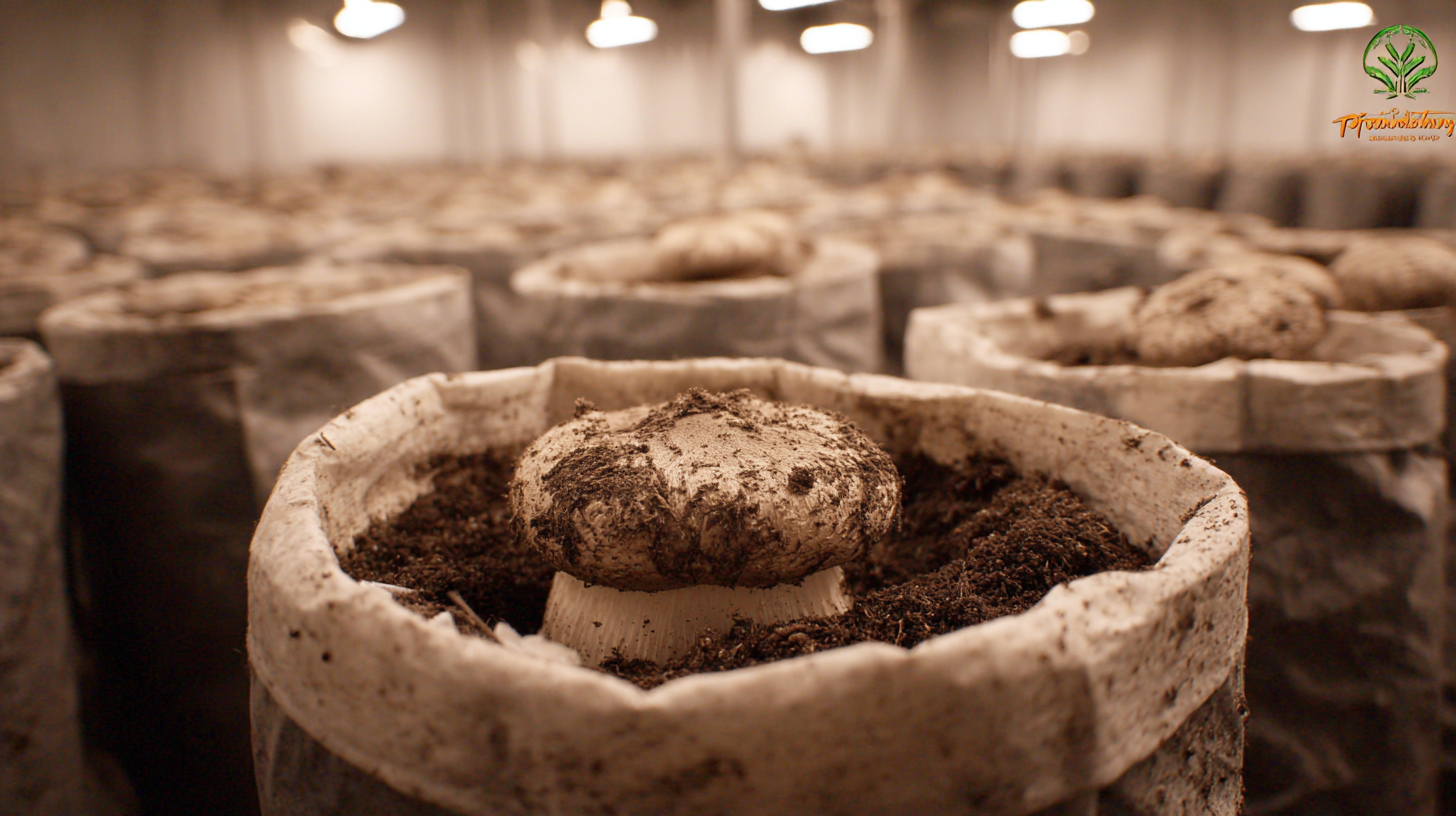

The future of sustainable cultivation is increasingly being shaped by innovative solutions, and one of the most promising advancements in this field is the use of PP mushroom grow bags. These bags not only provide an ideal environment for mushroom cultivation but also contribute to reducing the environmental impact associated with traditional growing methods. According to a report by MarketsandMarkets, the global mushroom market is projected to reach USD 69.3 billion by 2027, expanding at a CAGR of 10.5%, which underscores the growing consumer demand for mushrooms as a sustainable food source. Furthermore, the adoption of PP mushroom grow bags is on the rise due to their durability, lightweight nature, and ability to support optimal gas exchange, making them a preferred choice among modern cultivators. As the agricultural sector seeks to embrace more eco-friendly practices, understanding the benefits and applications of PP mushroom grow bags will be crucial for both new and experienced growers looking to enhance their sustainability efforts.

When it comes to sustainable cultivation, selecting the right materials is crucial, and this is particularly true for mushroom growing.
PP (polypropylene) mushroom grow bags have gained popularity for their durability and environmental benefits.
These bags not only provide a dependable growing environment for mushrooms but are also designed to minimize waste compared to traditional cultivation methods.
Choosing high-quality PP bags is a step toward a more sustainable future in mushroom farming, as they are reusable and recyclable, contributing to a reduction in the environmental footprint of agricultural practices.
Moreover, the importance of using the proper sizing and thickness of PP bags cannot be overstated.
The right bag can ensure optimal air exchange, moisture retention, and pest resistance, all essential factors for healthy mushroom growth.
By investing in the appropriate PP mushroom grow bags, cultivators can enhance their yield while adhering to sustainable practices.
As demand for eco-friendly solutions rises, conscious choices in mushroom cultivation not only benefit growers but also align with the broader goals of sustainability and environmental responsibility.
This mindful approach is essential for the future of agriculture, making it imperative for growers to recognize the value of their growing materials.
As the demand for sustainable agriculture continues to grow, the role of durable PP mushroom grow bags has become increasingly significant. These bags, made from polypropylene, have been shown to enhance mushroom cultivation due to their strength and resistance to microbial contamination. According to a report from the Global Mushroom Market Research Institute, the use of quality grow bags can increase mushroom yields by up to 20% compared to traditional methods, underscoring their importance in sustainable practices.
Key features of high-quality PP mushroom grow bags include their puncture resistance and permeability, which are vital for optimal gas exchange during the growth process. A study published in the Journal of Agricultural Science found that bags with proper ventilation resulted in faster colonization rates, leading to earlier harvests. Additionally, the ability to withstand extreme environmental conditions makes these grow bags suitable for various growing environments, thus offering flexibility for farmers. In regions facing climate change impacts, the durability and reusability of PP bags could pave the way for a more resilient cultivation approach, promoting sustainable food sources for the growing global population.

The comparative analysis of different types of mushroom grow bags reveals crucial insights into optimizing cultivation practices for Pleurotus ostreatus (oyster mushrooms). Recent studies indicate that substrate composition significantly affects the nutritional quality of the fruiting bodies. For example, cultivating oyster mushrooms on palm waste substrates supplemented with rice bran and wheat bran showed enhanced dietary quality, highlighting the importance of selecting appropriate grow bag materials that support nutrient-rich substrates.
Moreover, the efficiency of various grow bags can also be influenced by the biological treatments applied during cultivation. A study evaluating twelve different treatments with lime demonstrated varying impacts on growth and yield. Such findings suggest that using specialized grow bags that support these treatments could lead to more robust mycelium development and reduced time from spawn to harvest. As the industry moves towards sustainable practices, integrating IoT technology for real-time monitoring can further refine the cultivation process, optimizing resource use and minimizing waste while improving overall yield.
The use of polypropylene (PP) mushroom grow bags represents a crucial step towards sustainable cultivation practices. These bags, made from recycled materials, support the growth of mushrooms like Pleurotus sajor-caju while minimizing the environmental impact typically associated with conventional plastic use. According to recent studies, excessive plastic production and improper disposal contribute significantly to environmental pollution. By integrating materials derived from biomass waste and upcycling plastics, we can pave the way for more sustainable practices in agriculture.
Research indicates that transitioning to biodegradable alternatives and sustainable bioplastics can significantly reduce the carbon footprint associated with traditional packaging materials. A comprehensive review of bioplastics reveals their potential for improved environmental performance in the circular economy—where they not only biodegrade effectively but also utilize renewable resources. This aligns with global projections that emphasize a shift towards bioplastics by 2050 to combat the ever-growing concerns of plastic pollution. By adopting PP mushroom grow bags as a key component in sustainable mushroom cultivation, we contribute to a sustainable future while simultaneously addressing the pressing issue of plastic waste.

In the quest for sustainable farming practices, utilizing PP (polypropylene) mushroom grow bags has emerged as a transformative approach for both small-scale and industrial mushroom cultivators. According to a report by the Food and Agriculture Organization (FAO), the global mushroom market is projected to reach $120 billion by 2026, highlighting the increasing demand for innovative cultivation methods. PP mushroom grow bags, known for their durability and moisture retention properties, play a vital role in enhancing yield while minimizing environmental impact.
Best practices for using PP mushroom grow bags include optimizing the sterilization process to ensure a clean substrate environment. Studies indicate that effective sterilization can increase yield by as much as 30%, promoting healthier mycelial colonization. Additionally, maintaining optimal temperatures and humidity levels within the bags is crucial, as mushrooms thrive in specific conditions. Research conducted by the International Journal of Mushroom Research suggests that improper conditions can lead to significant declines in productivity. By integrating these best practices, growers can maximize their output sustainably, aligning with the industry's shift towards environmentally friendly farming solutions.
| Best Practices | Advantages | Sustainability Impact | Material Used | Optimal Conditions |
|---|---|---|---|---|
| Use high-quality spawn | Better yields | Reduces waste | PP (Polypropylene) | Humidity: 85-90% |
| Sterilize substrates | Prevents contamination | Enhances quality | 100% recyclable | Temperature: 20-24°C |
| Monitor moisture levels | Improves mushroom growth | Conserves water | Lightweight | Air circulation: adequate |
| Use appropriate bag sizes | Space-efficient | Reduces CO2 footprint | UV resistant | Ventilation: controlled |